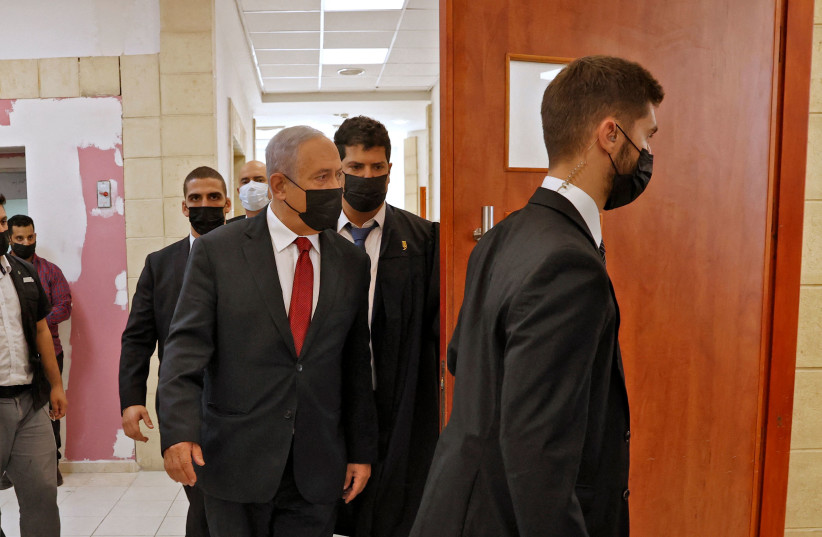A key police interrogator in the public corruption trial of former prime minister Benjamin Netanyahu testified on Monday that he had never placed undue pressure on a top former aide of Netanyahu in order to flip him into being a state’s witness.
Police interrogator Nir Schwartz went through the full list of accusations before the Jerusalem District Court that Netanyahu’s defense team has tried to use to undermine the testimony of state’s witness Nir Hefetz.
Hefetz has provided powerful ammunition for the prosecution to prove media bribery against Netanyahu in Case 4000, the “Bezeq-Walla affair,” but has also castigated the police for abusing him during his interrogation.
Netanyahu’s defense team has said Hefetz was coerced into turning on Netanyahu and that his accusations should be disregarded as not credible.
Schwartz said Hefetz had received proper food and sometimes double portions and standard levels of sleep for interrogation, despite Hefetz’s charge that some levels of food and sleep deprivation were used against him.

The police interrogator acknowledged that on one day, Hefetz emerged with a large number of bug bites from his prison cell, but said Hefetz mostly healed within a day and that the situation was unintentional and still had not thrown Hefetz off from defending his narrative.
Next, he said Hefetz’s request for a doctor did take a day to handle, but only because that was how long it took to obtain a doctor given the unusual hour in which Hefetz made his request. He added that no medical attention was withheld from Hefetz.
Hefetz has said that such an answer is an anachronism since it was the police who decided what middle-of-the-night times to arrest and interrogate him, so they should be responsible for providing medical attention quickly even at those unusual times.
Schwartz did admit that another police interrogator, Yaniv Peleg, had improperly pressured Hefetz to change his lawyer to someone more willing to cut a plea deal.
However, he said that he stepped in and stopped Peleg and Schwartz. The prosecution and Hefetz himself have all said it was clear that Hefetz would ultimately cut an immunity deal of his own free will, mostly to avoid jail time and be free to tell the truth.
Moreover, Schwartz said the police did pressure Hefetz to cooperate with providing a full and truthful narrative, but beyond that they did not try to lead him to any specific dates or details.
The prosecution and Hefetz have said they at times showed Hefetz his own text messages to refresh his memory when he said he did not remember something, but that this kind of intervention is not prohibited.
In one of the most controversial portions of Schwartz’s testimony, he shocked the court and those observing saying he did not remember who ordered him to summon at the police station before Hefetz a third party (whose identity is under gag order) to whom Hefetz was not married, but had some undefined romantic connection.
Netanyahu’s defense lawyers have said bringing the third party to the police station was illegal extortion.
Schwartz did not view the exercise as problematic and said he was given an order to summon the third party, but could not recall by whom.
Sources have indicated that though this specific issue is a weak point for the prosecution, they can sidestep it by pointing out that Hefetz not only criticized them for it, but also said it was not the reason he became a state’s witness.
The prosecution and the defense also arrived at an agreement to allow police statements into evidence of several witnesses meant to testify in January.
This is expected to advance the all-important testimony of former Netanyahu top aide turned state’s witness Shlomo Filber to as soon as late January.
The initial stages of the Netanyahu trial started in January and May 2020, with the witness stage of the Netanyahu trial starting in April 2021.
Even after Case 4000 concludes, the prosecution will also be spending significant time making arguments against Netanyahu in the Case 1000 “illegal gifts affair” and the Case 2000 Yediot Aharonot-Israel Hayom “attempted media bribery affair.”
